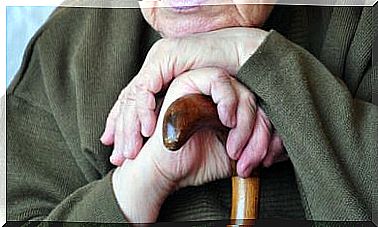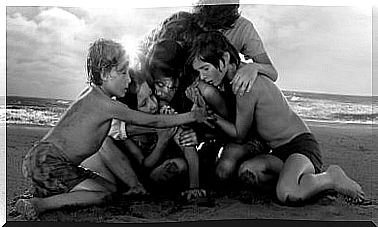Reduce The Fear Of Death: 5 Facts That Can Help Us

How to reduce the fear of death? Who more or who has ever felt it less. Few fears are so universal and integrated in turn in any brain, in any mental universe. We know that it is little less than the price of being alive and that, after all, we are mere tenants in a world where nothing is eternal, where everything changes, dies and is renewed.
Nelson Mandela said that the brave person is not one who does not feel fear, but one who, despite fear, dares to live. Now how to do it? We are aware that sometimes things happen that suddenly put us on that edge. An accident, a disease … The fear of death is not just experiencing anguish for that end, for the ignorance of not knowing what is next.
This anxiety is basically focused on two aspects: the fear of suffering and leaving our loved ones. They are therefore two concrete and understandable fears. It is time to delve into this aspect. In our society, unlike other cultures, little is said about death: it is uncomfortable, it hurts and few feel prepared for it.
It is therefore time to delve into some aspects.

1. Reduce the fear of death: acceptance, remember that we cannot control everything
Daphne du Maurier said that death should be like a farewell at a train station. It should allow us at least one last conversation, one last hug, and leave without suffering or hardship. However, we must assume that this is not the case. We are that society that says goodbye to the deceased as soon as possible and that pays embalmers so that, in the last goodbye, those loved ones seem almost alive.
We usually prevent children from going to funerals or cemeteries, thereby achieving an early inability to understand and assume what death is. All of this is understandable. However, we have a pending account with the acceptance. Epícteto said that we must stop obsessing about things happening the way we want . You have to accept things as they come: assuming it will save us suffering.
On the other hand, there is something evident. We forget that we are finite, that what we take for granted today can be lost tomorrow. Integrating this idea should allow us to focus on what is most relevant: living life with passion because it is brief, because we are not eternal.
2. You already know physical suffering and no, the end does not have to be painful
In a study carried out at the University of Haifa (Israel) it was possible to see that death anxiety or thanatophobia is usually absent in the elderly; they are not afraid of dying. What distresses them is the process of death. In other words: suffering.
To reduce the fear of death we must stop focusing on the anguish of pain. The end does not always go hand in hand with suffering or constant and excruciating pain. There are warm, fast and even placid endings. We also have medicine and palliative care.
Likewise, there is something evident: who more and who less already knows physical suffering, we are already familiar with it. If you have lived it at some point, you know that it can be supported and that it is something that always ends, that ends up disappearing.
3. What will happen to me? Where will my conscience go?
It’s true, one of our fears is not knowing what happens next. Do we disappear? Where does our consciousness and all that we are and have been during our existence go? We fear nothingness, absence, we are terrified of not being, not having … And yet, what is undoubtedly the greatest of the mysteries of our existence is something that happens daily all over the world. We are born and we die, nothing is so natural.
The best thing to do in these situations is to hold on to our beliefs. There are those who hope to be reunited with their loved ones, with those who left at a given moment. It’s a good option. Others focus on their religion, their spirituality … It is always good to believe in something, if that something gives us peace and hope.
4. Close wounds, untie knots
To reduce the fear of death, it never hurts to close pending accounts and existential knots to face that step with less mental burdens. It is a way to reach that moment more satisfied, without regrets, without regretting what we could not do or solve.
Hence, it is appropriate to solve that problem we had with someone in the past, reconcile with a family member or simply ask for forgiveness or even forgive. Let’s think about it.

5. A meaningful life for a quiet death
Those who have had a full life do not fear the end so intensely. To reduce the fear of death, the best strategy is none other than knowing how to enjoy everyday life with all your courage, heart and courage. It is not good to reach that final moment having been left with the desire or worse still having lived life badly. What do we mean by the latter?
An unsatisfied existence is one that has failed to appreciate the wonderful gift of being alive, having good people around and a world full of beauty and possibilities. The objective is none other than to let death surprise us, enjoying our existence to the fullest.









